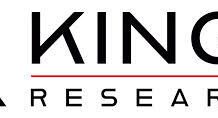Nonprofit organizations play an integral role in addressing societal issues, supporting communities, and making a positive impact on the world. To fund their missions, nonprofits often engage in charitable solicitation, which involves seeking donations from the public. However, the process of charitable solicitation is not without its complexities, including the need for charitable solicitation registration. In this blog, we will demystify charitable solicitation registration, shedding light on what it entails and how nonprofits can navigate the compliance landscape with ease.
Understanding Charitable Solicitation
Charitable solicitation refers to the practice of asking for donations or funds from the public to support a nonprofit organization’s mission, projects, and initiatives. This solicitation can take various forms, including online crowdfunding campaigns, direct mail appeals, telemarketing efforts, and in-person fundraising events. While these activities are fundamental for nonprofits to fulfill their objectives, they are subject to a web of state and federal regulations designed to ensure transparency, accountability, and the protection of donors.
The Complex Landscape of Charitable Solicitation Compliance
Nonprofits are obligated to adhere to a range of laws and regulations when engaging in charitable solicitation. These requirements vary from state to state, making compliance a complex and multifaceted endeavor. Common compliance obligations include:
- Charitable Solicitation Registration: In many states, nonprofits must register before conducting any fundraising activities. This registration process involves the submission of various documents and payment of fees, which can be administratively demanding.
- Reporting Requirements: Nonprofits must submit annual financial reports that detail income, expenses, and fundraising expenditures to state authorities. These reports must be accurate and transparent.
- Disclosure Statements: Nonprofits are required to provide donors with clear, accurate, and accessible information about their mission, financial health, and how donations will be used.
- Professional Fundraisers: When nonprofits hire third-party fundraising companies, they must ensure that these professionals comply with state regulations, including registration and reporting requirements.
- Telemarketing Compliance: If nonprofits engage in telemarketing for solicitation, they must adhere to specific rules, such as honoring the National Do Not Call Registry.
Navigating Charitable Solicitation Registration with Ease
While charitable solicitation compliance may appear daunting, there are several strategies nonprofits can employ to simplify the process:
- Utilize Technology: Explore software and digital tools designed to streamline the registration process. These tools can help manage documentation, deadlines, and reporting requirements more efficiently.
- Centralize Information: Maintain a centralized repository of all relevant documents and data. This facilitates easy access and retrieval of required information for registration and reporting.
- Stay Informed: Keep abreast of state and federal regulations, regularly reviewing any updates or new requirements that may affect your organization’s compliance.
- Seek Expert Guidance: Consider consulting with professionals who specialize in charitable solicitation registration. They can provide valuable guidance, ensuring your nonprofit remains compliant while minimizing the administrative burden.
- Develop a Compliance Calendar: Create a calendar that highlights important deadlines for registration, reporting, and renewals. This will help prevent oversights and ensure timely submissions.
- Train Your Team: Educate your staff and volunteers on compliance requirements and the significance of adhering to them. This training can help prevent errors and oversights.
- Prioritize Transparency: In your fundraising efforts, prioritize transparency by providing donors with clear, accurate information about your mission and how their donations will be used. Transparent practices build trust and confidence among donors.
Conclusion
Charitable solicitation registration is a vital aspect of nonprofit compliance, ensuring transparency and accountability in fundraising efforts. While it may seem complex, nonprofit organizations can simplify the process by embracing technology, centralizing information, staying informed, seeking expert guidance, and maintaining transparency. Easy charitable solicitation registration ultimately benefits the nonprofit, donors, and the causes they serve, allowing resources to be channeled more effectively toward making a meaningful impact on the world.






















